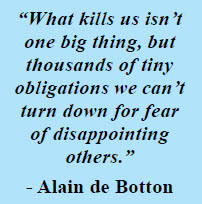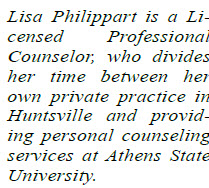 By: Lisa Philippart
By: Lisa Philippart
You have probably heard of FOMO, fear of missing out– but what about FODO, fear of disappointing others? While FODO has less name recognition than its more popular sibling, fear of disappointing others is every bit as important to recognize because of its subtle but significant long-term consequences. Often chronic stress, anxiety, overwhelm, worry, and even burnout are driven primarily by FODO. For example, you may be stressed out because you have a hard time setting boundaries and just saying no. And you are unwilling to say no because you are afraid someone will feel disappointed with you. Like any excessive fear, there’s only one way to get over it: You have to face it…repeatedly and willingly. You have to prove to your brain that the thing it’s terrified of isn’t actually dangerous. It’s by approaching things you are afraid of, instead of avoiding them, that our brain learns to stop fearing them. Let’s take a look at some ways to get over the fear of disappointing others.
 You may want to consider the costs of your FODO. One effective way to boost your motivation to face your FODO is to remind yourself of the costs and consequences of never saying no. For example, if you are struggling to end a relationship because of FODO, you might consider the damages incurred by staying in the relationship. The stress it’s creating is causing physical, mental, and emotional symptoms. All the time and energy you put into this relationship could have been better spent investing in a more positive relationship. The emotional energy you have spent over making this decision is energy you don’t have for the important people in your life. In other words, there are emotional opportunity costs to your fear of disappointing others and avoiding facing up to that fear. As painful as it may be, facing up to these costs can boost your motivation to change and do something different.
You may want to consider the costs of your FODO. One effective way to boost your motivation to face your FODO is to remind yourself of the costs and consequences of never saying no. For example, if you are struggling to end a relationship because of FODO, you might consider the damages incurred by staying in the relationship. The stress it’s creating is causing physical, mental, and emotional symptoms. All the time and energy you put into this relationship could have been better spent investing in a more positive relationship. The emotional energy you have spent over making this decision is energy you don’t have for the important people in your life. In other words, there are emotional opportunity costs to your fear of disappointing others and avoiding facing up to that fear. As painful as it may be, facing up to these costs can boost your motivation to change and do something different.
Remember that you are not responsible for other people’s emotions! You are not responsible for things you can’t control. While it is unfortunate when someone feels disappointed in you, it is not something that you have direct control over. How we feel is the result of how we think — which means other people’s emotions are their responsibility, not yours. Of course, you do have a responsibility to behave well, because your behavior is something you can control. You are responsible for your own actions, not other people’s feelings. And how another person interprets and feels about your behavior is not something you have to manage.
 Try to reframe your FODO as uncomfortable, not dangerous. Remember that emotions like fear and anxiety are unpleasant—painful even—but not themselves dangerous. No matter how afraid you feel, your fear can’t hurt you. Even panic, the most extreme form of anxiety, isn’t itself dangerous. One of the reasons we have such a hard time facing our fears is because our tolerance for fear itself is so low. And it’s low because we mistakenly assume that because fear and anxiety feel bad, they are bad. As a result, we believe we should avoid them. If you are going to get over your fear of disappointing others, you are going to have to face that fear head on. Which means you are going to have to willingly feel afraid and tolerate that feeling for a while. Just because something feels bad doesn’t mean it is bad. Reframe your fear as uncomfortable but not dangerous, and you will be a little more likely to tolerate it instead of impulsively trying to avoid it.
Try to reframe your FODO as uncomfortable, not dangerous. Remember that emotions like fear and anxiety are unpleasant—painful even—but not themselves dangerous. No matter how afraid you feel, your fear can’t hurt you. Even panic, the most extreme form of anxiety, isn’t itself dangerous. One of the reasons we have such a hard time facing our fears is because our tolerance for fear itself is so low. And it’s low because we mistakenly assume that because fear and anxiety feel bad, they are bad. As a result, we believe we should avoid them. If you are going to get over your fear of disappointing others, you are going to have to face that fear head on. Which means you are going to have to willingly feel afraid and tolerate that feeling for a while. Just because something feels bad doesn’t mean it is bad. Reframe your fear as uncomfortable but not dangerous, and you will be a little more likely to tolerate it instead of impulsively trying to avoid it.
In my next article we will continue to explore ways to overcome your FODO.
By: Lisa Philippart
Licensed Professional Counselor










 June 20, 2025
June 20, 2025



